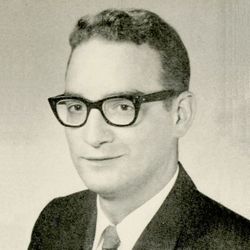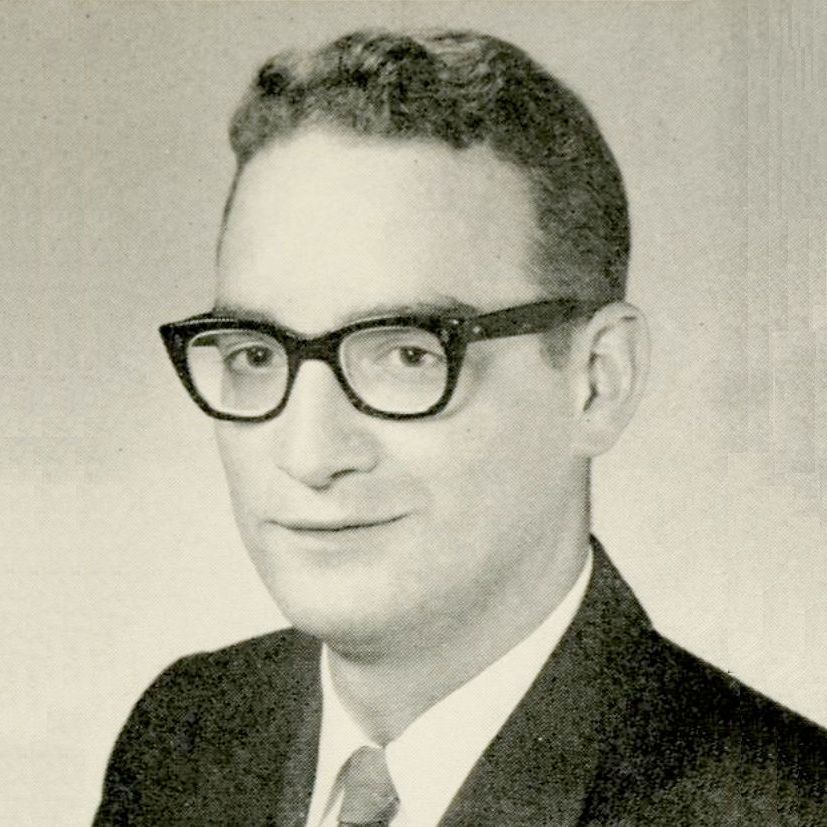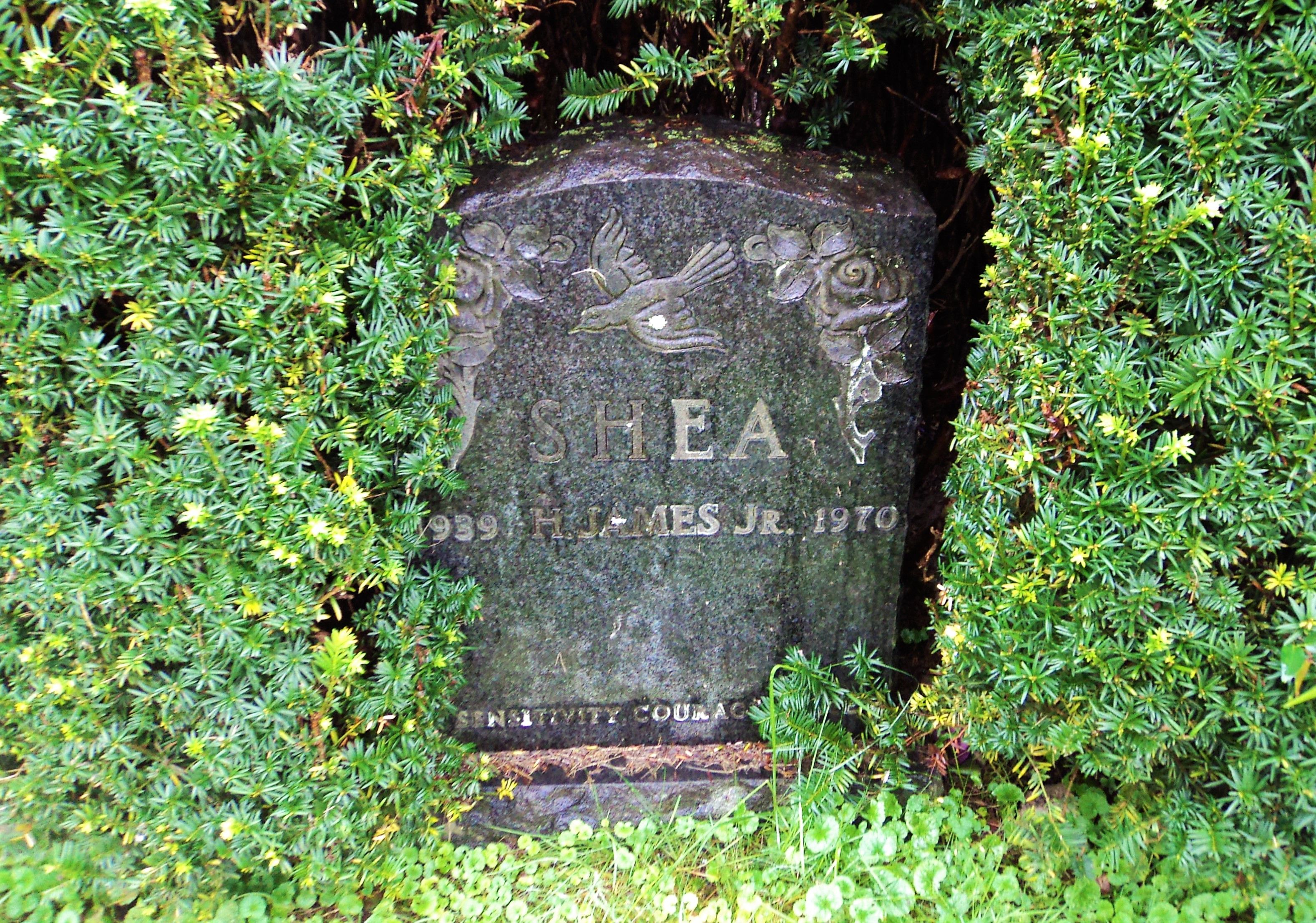His wife and close friends gave those probable reasons why the 30-year-old Democrat shot himself early yesterday in his home on Princess Road in West Newton. Mrs. Anita Shea, 28, saw the freshman legislator fire a bullet from a .38 caliber revolver into his head. She said he had been "troubled lately because of political pressures." She told a press conference in Newton police headquarters that she and her husband of three years had spent most of Friday evening at the home of friends.
They returned to their two-story, white, Cape-style home shortly after midnight, and Shea went to an upstairs room he used as an office. A few moments later, Mrs. Shea opened the door of the room in time to see her husband raise the gun, one of two he owned, with both hands, pull the trigger and fall backward to the floor. She telephoned Alderman Joseph M. McDonnell, at whose home she and her husband had spent the evening. McDonnell called police. Dr. Nathaniel M. Brackett, associate medical examiner of Middlesex County, conducted an autopsy and ruled that Shea died of a self-inflicted gunshot wound in the head.
"My husband, Jim, was mortally injured by a self-inflicted wound." Mrs. Shea told reporters. "I was in the room at the time. There was no one else in the vicinity to my knowledge. Jim was under political pressure, but he was serving you to the best of his ability. The demands on his life were great, but he loved his family, his city, state and country. He wanted to serve you and them in peace. I am proud of him because he was a courageous man. I think Jim would say he chose to do what was right. He worked within his conscience, and he would urge you to work within your conscience and before the law."
McDonnell said the Sheas spent a social evening at his home on Center Street. He declined to say whether Shea was depressed, but he did stress that Shea did not watch President Nixon's televised news conference.
John Businger, Shea's 25-year-old legislative and administrative aide, said his crusading young employer had in recent months fulfilled his many commitments as a legislator but had been concerned mostly with the fate of his anti-war bill and the conduct of the war itself. The landmark law that Shea sponsored stipulates that Massachusetts citizens do not have to fight in undeclared wars. The purpose of the measure, signed, last month by Gov. Francis W. Sargent, is to make the U.S. Supreme Court rule on the constitutionality of undeclared wars, such as the Vietnam conflict. "That bill was the crowning achievement of Jim's life, and he had great hope for it," Businger said, "but he was depressed by the state of the war, and he knew so much more had to be done. People were always asking him to do more, and he wanted to do more. He gave about seven or eight addresses within the past three days, and he wanted to do more, but he was just one man."
Rev. John M. Wells, author of the law that Shea fought through the legislature, said he talked with Shea Friday night but had "no indication anything like this would occur." "He was under terrific pressure; but, then, Jim's used to pressure," the minister of Lexington's First Parish Unitarian (Unitarian Unitarian Universalist Church said. "I knew he had the feeling that the harder he worked for peace the more never-ending the war seemed to become."
Even before he earned nationwide recognition for the legislation that bears his name, Herman James Shea had won the respect and affection of his fellow lawmakers on Beacon Hill — freshmen and veterans, Democrats and Republicans. He was one of the most brilliant crusading politicians to enter the Massachusetts Legislature in recent years. "He was an idealistic guy who had that rare talent of adapting himself to the political system without compromising his principles," one legislator said. "He had no other job and worked 60 hours a week sometimes at his profession as a politician. He liked to ski, walk in the country and fish, but he didn't have much time for outside interests."
A slightly built man with short, dark hair, thick glasses and conservative clothes, Shea had a serious nature. He also possessed a delightful sense of humor, a penchant for wise-cracks and an easy smile. "No one ever saw him lose his temper in debate," a friend said. Rev. Wells said his friend Jim Shea had a curious walk, "as though he didn't know where he was going," but "Jim really knew where he was going, always."
A native of Boston, Shea was interested in politics from boyhood. After graduating from Newton High School, he attended Tufts and received his AB degree. He took the graduate courses in political science and the law at Northeastern University and did graduate work at the University of Virginia Law School. He was an assistant political science instructor at Northeastern University and finally entered politics as a Newton alderman in 1966. He served two terms and then was elected to his first term in the House in 1969.
According to Businger, Shea was interested "in almost everything" and had filed about 50 bills at the time of his death. His main concerns, however, were his anti-war legislation, electoral reform and protecting the environment from pollution. In one bill he proposed the formation of a pollution-fighting Youth Environment Service. Although he was Roman Catholic, he also filed legislation to reform Massachusetts' antiquated divorce laws.
His concern for electoral reform prompted him to consider running for secretary of state to oppose incumbent John F. X. Davoren. A convention of the Citizens for Participation in Politics scheduled yesterday but canceled because of his death, was expected to nominate him as a candidate for that office. He tried to bridge the sometimes seemingly unbridgeable gap between the young and the Establishment.
Although he once had wanted to fight in Vietnam (he was rejected by the Army at age 25 because of an ulcer), he later rejected the rationale for the war and became caught up in the anti-war movement. His opposition to the war and his empathy for young dissenters influenced him to push his famous legislation. He was the only Massachusetts lawmaker to take part in the massive Apr. 15 Vietnam Moratorium rally on Boston Common. Only four days before he died he walked among 20,000 students massed in front of the State House, urging them "to give the system a chance."
At the same rally he appealed to Gov. Sargent to lower the flag in tribute to the students killed at Kent State University and to the Bay Staters who have died in Southeast Asia. The next day, in the House, a legislator charged that Shea had "brought great shame to this chamber.'' Shea defended his action and, in what turned out to be his last speech to the House, he said: "My friends, our society is in serious trouble. It requires sound, unemotional judgment, not the pillorying of students. The whole breakdown started with the assassination of John F. Kennedy. We've got to come together ..."
Shea frequently addressed liberal organizations and colleges. He was a vice chairman of Americans for Democratic Action and a member of the American Political Science Assn. He leaves, besides his wife, his parents, Mr. and Mrs. Herman Shea of Newton; two brothers, Peter D. Shea of Stockbridge and John C. Shea of Berkeley, Calif.
Visiting hours will be 2 to 4 and 7 to 9 p.m. today at the Conry Funeral Home, 437 Washington st., Newton. Tomorrow there will be a requiem Mass in Our Lady of Christian Help Church, Newtonville. Private burial will be in St. Joseph's Cemetery, West Roxbury. Tomorrow's House session will be informal, and on Tuesday the Legislators will observe a moment of silence.
Published in the Boston Globe on May 10, 1970
His wife and close friends gave those probable reasons why the 30-year-old Democrat shot himself early yesterday in his home on Princess Road in West Newton. Mrs. Anita Shea, 28, saw the freshman legislator fire a bullet from a .38 caliber revolver into his head. She said he had been "troubled lately because of political pressures." She told a press conference in Newton police headquarters that she and her husband of three years had spent most of Friday evening at the home of friends.
They returned to their two-story, white, Cape-style home shortly after midnight, and Shea went to an upstairs room he used as an office. A few moments later, Mrs. Shea opened the door of the room in time to see her husband raise the gun, one of two he owned, with both hands, pull the trigger and fall backward to the floor. She telephoned Alderman Joseph M. McDonnell, at whose home she and her husband had spent the evening. McDonnell called police. Dr. Nathaniel M. Brackett, associate medical examiner of Middlesex County, conducted an autopsy and ruled that Shea died of a self-inflicted gunshot wound in the head.
"My husband, Jim, was mortally injured by a self-inflicted wound." Mrs. Shea told reporters. "I was in the room at the time. There was no one else in the vicinity to my knowledge. Jim was under political pressure, but he was serving you to the best of his ability. The demands on his life were great, but he loved his family, his city, state and country. He wanted to serve you and them in peace. I am proud of him because he was a courageous man. I think Jim would say he chose to do what was right. He worked within his conscience, and he would urge you to work within your conscience and before the law."
McDonnell said the Sheas spent a social evening at his home on Center Street. He declined to say whether Shea was depressed, but he did stress that Shea did not watch President Nixon's televised news conference.
John Businger, Shea's 25-year-old legislative and administrative aide, said his crusading young employer had in recent months fulfilled his many commitments as a legislator but had been concerned mostly with the fate of his anti-war bill and the conduct of the war itself. The landmark law that Shea sponsored stipulates that Massachusetts citizens do not have to fight in undeclared wars. The purpose of the measure, signed, last month by Gov. Francis W. Sargent, is to make the U.S. Supreme Court rule on the constitutionality of undeclared wars, such as the Vietnam conflict. "That bill was the crowning achievement of Jim's life, and he had great hope for it," Businger said, "but he was depressed by the state of the war, and he knew so much more had to be done. People were always asking him to do more, and he wanted to do more. He gave about seven or eight addresses within the past three days, and he wanted to do more, but he was just one man."
Rev. John M. Wells, author of the law that Shea fought through the legislature, said he talked with Shea Friday night but had "no indication anything like this would occur." "He was under terrific pressure; but, then, Jim's used to pressure," the minister of Lexington's First Parish Unitarian (Unitarian Unitarian Universalist Church said. "I knew he had the feeling that the harder he worked for peace the more never-ending the war seemed to become."
Even before he earned nationwide recognition for the legislation that bears his name, Herman James Shea had won the respect and affection of his fellow lawmakers on Beacon Hill — freshmen and veterans, Democrats and Republicans. He was one of the most brilliant crusading politicians to enter the Massachusetts Legislature in recent years. "He was an idealistic guy who had that rare talent of adapting himself to the political system without compromising his principles," one legislator said. "He had no other job and worked 60 hours a week sometimes at his profession as a politician. He liked to ski, walk in the country and fish, but he didn't have much time for outside interests."
A slightly built man with short, dark hair, thick glasses and conservative clothes, Shea had a serious nature. He also possessed a delightful sense of humor, a penchant for wise-cracks and an easy smile. "No one ever saw him lose his temper in debate," a friend said. Rev. Wells said his friend Jim Shea had a curious walk, "as though he didn't know where he was going," but "Jim really knew where he was going, always."
A native of Boston, Shea was interested in politics from boyhood. After graduating from Newton High School, he attended Tufts and received his AB degree. He took the graduate courses in political science and the law at Northeastern University and did graduate work at the University of Virginia Law School. He was an assistant political science instructor at Northeastern University and finally entered politics as a Newton alderman in 1966. He served two terms and then was elected to his first term in the House in 1969.
According to Businger, Shea was interested "in almost everything" and had filed about 50 bills at the time of his death. His main concerns, however, were his anti-war legislation, electoral reform and protecting the environment from pollution. In one bill he proposed the formation of a pollution-fighting Youth Environment Service. Although he was Roman Catholic, he also filed legislation to reform Massachusetts' antiquated divorce laws.
His concern for electoral reform prompted him to consider running for secretary of state to oppose incumbent John F. X. Davoren. A convention of the Citizens for Participation in Politics scheduled yesterday but canceled because of his death, was expected to nominate him as a candidate for that office. He tried to bridge the sometimes seemingly unbridgeable gap between the young and the Establishment.
Although he once had wanted to fight in Vietnam (he was rejected by the Army at age 25 because of an ulcer), he later rejected the rationale for the war and became caught up in the anti-war movement. His opposition to the war and his empathy for young dissenters influenced him to push his famous legislation. He was the only Massachusetts lawmaker to take part in the massive Apr. 15 Vietnam Moratorium rally on Boston Common. Only four days before he died he walked among 20,000 students massed in front of the State House, urging them "to give the system a chance."
At the same rally he appealed to Gov. Sargent to lower the flag in tribute to the students killed at Kent State University and to the Bay Staters who have died in Southeast Asia. The next day, in the House, a legislator charged that Shea had "brought great shame to this chamber.'' Shea defended his action and, in what turned out to be his last speech to the House, he said: "My friends, our society is in serious trouble. It requires sound, unemotional judgment, not the pillorying of students. The whole breakdown started with the assassination of John F. Kennedy. We've got to come together ..."
Shea frequently addressed liberal organizations and colleges. He was a vice chairman of Americans for Democratic Action and a member of the American Political Science Assn. He leaves, besides his wife, his parents, Mr. and Mrs. Herman Shea of Newton; two brothers, Peter D. Shea of Stockbridge and John C. Shea of Berkeley, Calif.
Visiting hours will be 2 to 4 and 7 to 9 p.m. today at the Conry Funeral Home, 437 Washington st., Newton. Tomorrow there will be a requiem Mass in Our Lady of Christian Help Church, Newtonville. Private burial will be in St. Joseph's Cemetery, West Roxbury. Tomorrow's House session will be informal, and on Tuesday the Legislators will observe a moment of silence.
Published in the Boston Globe on May 10, 1970
Inscription
SENSITIVITY, COURAGE
Family Members
Sponsored by Ancestry
Advertisement
Records on Ancestry
Advertisement








